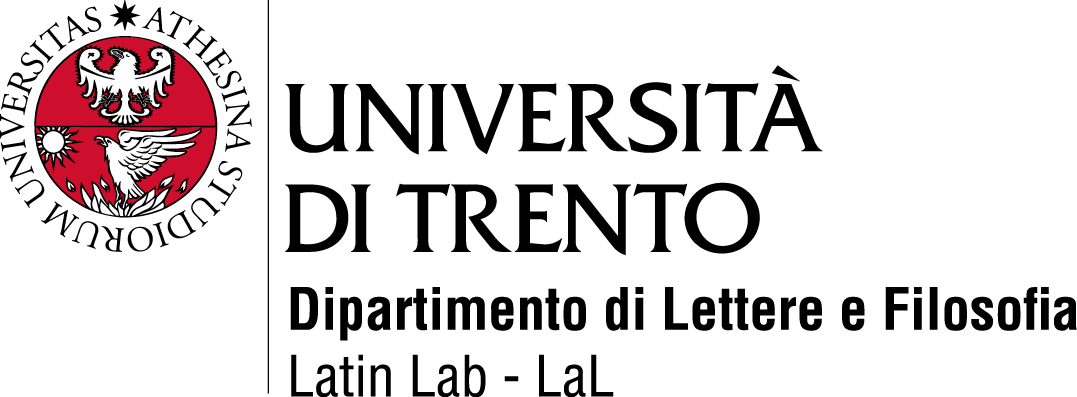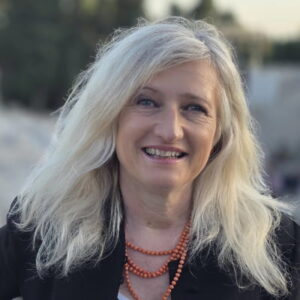
Caterina Mordeglia
Head of Lab
Short bio
Associate Professor of Latin Literature at the University of Trento, she specialises in Latin fables and theatre and their medieval and modern traditions, on which she has published critical editions, essays and monographs in Italian and foreign publications. Visiting Professor at the University of Cincinnati (OH) in 2024, she directs, together with Paolo Gatti, the international study series ‘FABULA. Fables from Antiquity to Modern Times’ and the Trentino editorial staff of “Medioevo Latino. Bollettino bibliografico internazionale della cultura europea da Boezio a Erasmo” (Latin Middle Ages. International bibliographic bulletin of European culture from Boethius to Erasmus). She is a member of the editorial board of “Maia. Rivista di letterature classiche” and “Dioniso. Rivista di studi sul teatro antico”. In 2024, he translated Plautus’ Miles gloriosus, which was staged at the Greek Theatre in Syracuse, directed by Leo Muscato.

Giuseppe Albertoni
Short bio
Full Professor of Medieval History at the University of Trento. His main research interests concern the Carolingian world and early medieval societies (8th-11th centuries) from a comparative perspective of political, cultural and economic history. His recent books include: L’elefante di Carlo Magno. Il desiderio di un imperatore (Bologna 2020) and Spes Italiae. Il regno di Pipino, i Carolingi e l’Italia (781-810), ed. with F. Borri (Turnhout 2023).

Roberta Capelli
Short bio
Roberta Capelli teaches Romance Philology and Linguistics at the Department of Humanities of the University of Trento. Her research interests are centered on medieval allegorical literature (Allegoria di un mito: Tiresia nell’Ovide moralisé, 2011), and its relationship with Medieval Latin literature (in particular the Bestiaries). She is also interested in secular poetry in the vernacular, with a special emphasis on Italian literature (Guittone d’Arezzo, Contro il carnale amore, 2007). She is the author, with Furio Brugnolo, of the university textbook Profilo delle letterature romanze medievali (Carocci, 2011 and 2019). She is an expert in revivalism and the work of Ezra Pound (Carte provenzali, 2013), and her research encompasses the study of medieval reception in both modern and contemporary eras. She founded and is responsible for the direction of the series of historico-literary, philological, and cultural studies “Medievalismi” (Edizioni dell’Orso), for which she edited the reference volume Fortune del Medioevo. Studi di Medievalismo (2023).
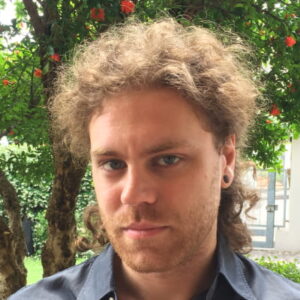
Manuel Fauliri
Short bio
Post-doctoral research fellow at the University of Trento, where he is working on the project Trasformare la materia: gli artigiani nel territorio trentino medievale (secoli XI-XIV). His research interest focuses on the role played by the beneficium in the kingdom of Italy between the 8th and 10th centuries and on social and economic dynamics in medieval Italy, investigating the networks of relationships from a perspective that also considers the contributions of anthropology.
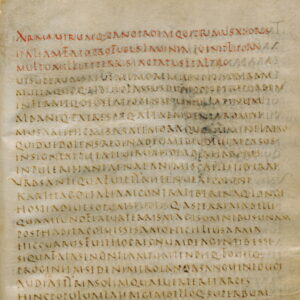
Paolo Gatti
Short bio
Professor Emeritus at the Department of Literature and Philosophy of the University of Trento, where he taught Medieval Latin Literature from 1990 to 2021. From 1978 to 1990, he was Wissenshaftlicher Miterabeiter at the Thesaurus Linguae Latinae, Bayerische Akademie der Wissenschaften, Munich. His interests include lexicography, fables, Latin and Medieval Latin hagiography, and elegiac comedy, on which he has published countless studies in prestigious national and international journals. Together with Caterina Mordeglia, he edits the international study series FABULA. Fables from Antiquity to Modern Times’ and the Trentino editorial staff of “Medioevo Latino. Bollettino bibliografico internazionale della cultura europea da Boezio a Erasmo” (Medieval Latin. International bibliographic bulletin of European culture from Boethius to Erasmus), for which he is also a member of the Scientific Committee. He is head of the lexicography and linguistics section of Sismel – International Society for the Study of Medieval Latin and a member of the Scientific Commission of the National Editions of Medieval Latin Texts (Ministry of Culture).

Francesco Ghia
Short bio
Francesco Ghia (Asti, 1970) is Associate Professor of Moral Philosophy and Philosophy of History at the University of Trento.
He is President of the Italian Association of Philosophy of Religion (AIFR), Scientific Advisor of the ‘Antonio Rosmini’ Centre of Studies and Research, of the ‘Inter-University Centre of Studies on Utopia’ (CISU) and Board Member of the Foundation Centro Studi Filosofici of Gallarate.
He is a corresponding member of the Class of Letters of the Accademia Roveretana degli Agiati.
He has edited texts by Ernst Troeltsch (L’autonomia della religione, Loffredo, Naples 1996; Scritti scelti, Utet [‘Classici della filosofia’], Turin 2005), Wilhelm von Humboldt Humboldt (Scritti sulla Bhagavadgîtâ, Morcelliana, Brescia 2008), Max Weber (Il politeismo dei valori, Morcelliana, Brescia 2010), Eugen Bleuler (Trattato di psichiatria, La Scuola, Brescia 2014; Antonio Rosmini (Filosofia del diritto, 3 vols., Città Nuova, Rome 2015), Thomas More (Utopia, Il Margine-Erickson, Trento 20192).
His main monographs include: Max Weber und die Kunst. Versuch einer Rekonstruktion der Weberschen Ästhetik, Dr. Kovač, Hamburg 2004; Ascesi e gabbia d’acciaio. La teologia politica di Max Weber, Rubbettino, Soveria Mannelli 2010; Etica e storia in Jellinek. La fondazione religiosa dei diritti umani, Il Mulino, Bologna 2017; Principio Apocatastasi. La vita restituita come postulato di una filosofia morale, Morcelliana, Brescia 2024.
Former editor of the magazine ‘Il Margine’, he is on the scientific and editorial board of several journals, of the series ‘Itineranze’ at the publisher Castelvecchi in Rome and is co-director of the series ‘Etica ed ermeneutica’ at Edizioni Dell’Orso in Alessandria. He is on the editorial board of the Italian edition of Romano Guardini’s works and is co- editor of the Italian edition of Erik Peterson’s works.
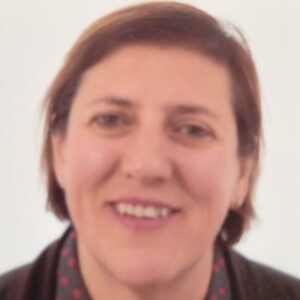
Raffaella Improta
Short bio
Nata a Napoli il 22 gennaio 1970, dove ha conseguito la maturità classica e successivamente il diploma di laurea in Lettere Classiche il 23 giugno 1997 presso l’Università Federico II. Nel 1998 ha frequentato un corso di perfezionamento in Lingue Classiche della durata annuale presso la stessa università. Nel 1999 si è trasferita a Trento come vincitrice di un concorso presso il Ministero dell’Interno e ha lavorato fino al 2007 presso l’Ufficio Immigrazione della Questura. Nello stesso anno ha partecipato al concorso a cattedra, ottenendo l’abilitazione per le classi di concorso A043, A050, A051 e A052. È stata immessa in ruolo il 1° settembre 2007 in qualità di docente di materie letterarie e ha insegnato dal 1° settembre 2008 al 31 agosto 2009 presso il Liceo Classico Pitagora di Pozzuoli (Napoli). Dal 1° settembre 2009 insegna al Liceo Classico Prati di Trento. Dall’anno accademico 2022/2023 ha ricevuto l’incarico di supporto alla Didattica presso l’Università di Lettere di Trento per i corsi di Latino 0, Latino 1 e Latino 2. Infine, per l’anno accademico 2024/2025, è iscritta al terzo anno del corso di laurea in Lettere Moderne presso l’Università degli Studi di Trento.

Bruno Mellarini
Short bio
PhD in Italian Studies at the University of Trento, deals with training and research in the area of Italian and classical languages.
He has published the volumes: Il mito e l’altrove (Fabrizio Serra 2017), Tra spazio e paesaggio: studi su Calvino, Biamonti, Del Giudice e Celati (Amos 2021), La forma dell’ego: identità personale e strategie narrativi da Buzzati a Lodoli (Metauro 2022), Scrivere il paesaggio. Cinque studi su Francesco Biamonti (Mimesis 2024). Other contributions, related to the teaching of Italian, are published in the magazine “RicercAzione”, in the volume edited by E. Zuin and P. Boscolo Come scrivere gli adolescenti (il Mulino 2014) and in the IPRASE series. Among the curators, we remember Intrecci, sentieri e labirinti: Calvino a scuola a cento anni dalla nascita (Iprase 2023) and Poesia e paesaggi (Iprase 2024). A member of the MOD, he has presented reports and contributions in numerous conferences and seminars at a national level.

Elvira Migliario
Short bio
Elvira Migliario is Full Professor of Roman History at the University of Trento. She studied at the University of Pavia, where she graduated under Emilio Gabba’s supervision with a thesis on Flavius Josephus (translation and commentary of the Vita, later included in a BUR edition, 1994); she obtained her PhD in 1987 at the joint universities of Pavia, Pisa and Perugia (and University College London). Her main research interests are: territorial and agrarian structures of ancient Italy (from the imperial period to the early Middle Ages); the Romanisation of the Cisalpine regions (regiones IX, X, XI) and the Alpine provinces; Greco-Roman ethno-geographical literature (she is preparing a commentary on parts of Strabo’s Books IV and V); the relationship between rhetoric and historiography in the early imperial period (starting with the work of Seneca the Elder); the fascist myth of Romanity (she has edited the volume “Noi figli di Roma”. Fascismo e mito della romanità, 2022).
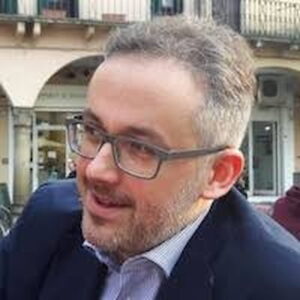
Luca Morlino
Short bio
Luca Morlino is Associate Professor of Romance Philology and Linguistics at the University of Trento. His research interests concern several themes and aspects of Medieval Romance Literatures (Troubadour Poetry, Carolingian Epic, Roman de Renart, legends of the Grail, history of Alexander the Great, Aesopic fables, teaching books, encyclopaedias, travel books), including their receptionin Modern and Contemporary Times. He published the edition of Enanchet (13th-century Franco-Italian teaching book on the social classes, their origins and love) and a Venetian vernacularization of Sallust’s Bellum Catilinae. He is also the author of several articles on historical-etymological lexicography and the history of philology and literary criticism (in particular on Leo Spitzer).
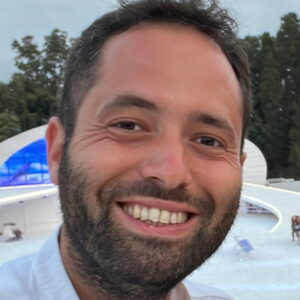
Francesco Morosi
Short bio
Francesco Morosi studied Classics at the Scuola Normale Superiore in Pisa (SNS) and at the University of California, Berkeley. Between 2018 and 2021, he led third mission and outreach activities at the SNS. He was also a member of the board of directors at the Normale in 2015, and a member of the Third Mission Commission between 2020 and 2021. He regularly collaborates with theatre organisations in Italy and abroad as a translator, playwright, and consultant. In 2025, he translated Oedipus at Colonus for the INDA Foundation in Siracusa.

Anna Novokhatko
Short bio
Associate Professor of Classics at the University of Trento. She taught at the University of Freiburg from 2007 to 2019 and at the Aristotle University of Thessaloniki from 2020 to 2025. She completed her PhD at the Lomonosov Moscow State University and the Albert-Ludwigs University of Freiburg in 2004 on the transmission of the pseudo-Sallustian invectives (published by De Gruyter in 2009 as The Invectives of Sallust and Cicero: critical edition with introduction, translation, and commentary). This was followed in 2018 by her habilitation at the University of Freiburg on Greek comedy and pre-Alexandrian scholarship (published in 2023 by De Gruyter as Greek comedy and embodied scholarly discourse). Anna Novokhatko is a member of the Akademie-Kolleg of the Heidelberg Academy of Sciences and Humanities and PI of the project Lexicon of Objects from the Greek Comedy (https://www.lggk.uni-freiburg.de/wordpressNew/) at the University of Freiburg. She has published widely on Greek comedy, Roman rhetoric and early Greek scholarly thought. She has a special interest in cognitive approaches to classical sources, conceptual metaphor, hermeneutics, and the methods of digital technologies. Her most recent book is a Guide to Classics and Cognitive Studies (2025).
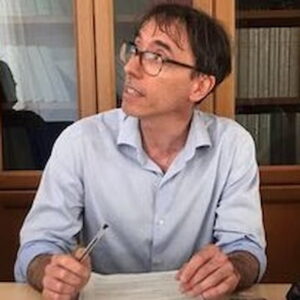
Alessandro Palazzo
Short bio
Alessandro Palazzo is an associate professor of History of Medieval Philosophy at the University of Trento. He is a specialist in medieval German philosophy and medieval forms of prognostication (prophecy, geomancy, and astrology). He has published studies on Albert the Great, Meister Eckhart, Berthold of Moosburg, and Denys the Carthusian, and has produced critical editions of Ulrich of Strasbourg’s De summo bono. The critical edition of Book 1 of Henry of Herford’s Catena aurea entium is forthcoming. He is currently preparing the edition of the Estimaverunt Indi, the Latin translation of an anonymous Arabic treatise of geomancy condemned in 1277 by bishop Étienne Tempier.

Caterina Pentericci
Short bio
After her PhD at the University of Trento, Caterina Pentericci is a Post-Doc Fellow in Classical Philology at the University of Urbino Carlo Bo, where she is also an Adjunct Professor of Latin Palaeography. In 2025 she obtained the ASN (National Scientific Qualifications) for the position of Senior Research Fellow Lingua e Letteratura Latina (10/D3) and of Filologia Classica e Tardo Antica (10/D4); in 2023 she graduated at the Schola Vaticana di Paleografia, Diplomatica e Archivistica of Vatican City. His scientific interests focus on archaic Latin theatre, with particular attention to Plautus’ Truculentus, whose critical edition he edited for the Editio Plautina Sarsinatis (2024). He is currently a member of the Editorial and Scientific Committee of the series “Rodopis – Studi e ricerche di antichità classica e del vicino est antico”, Urbino University Press, of the Editorial and Scientific Committee of the series “Biblioteca di testi e studi” – serie Ludi Plautini Sarsinates of Carocci Editore, of the Centro Internazionale di Studi Plautini of the University of Urbino Carlo Bo, of the Scientific Committee of Certamen Latinum “L’idolino” and Latinus Ludus in Mondaino.

Valentina Piro
Short bio
Research fellow in Medieval Latin Literature at the University of Milan, she obtained her doctorate in Trento, in co-supervision with the Friedrich-Alexander Universität Erlangen-Nürnberg. Her research interests mainly concern medieval Latin fables, chronicles and in general the relationship between Latin and vernacular literature in the late Middle Ages, on the borders of interculturality.
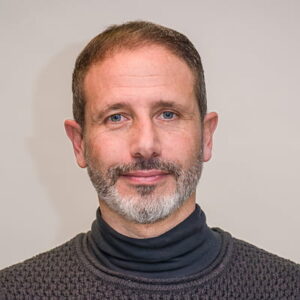
Emanuele Vaccaro
Short bio
Associate professor of Classical Archaeology at the Department of Humanities of the University of Trento. His main research interests include: Roman and Late Antique Archaeology; Material Culture from the Hellenistic to the Early Medieval Periods; Mediterranean Archaeology and Roman Art. His current field projects (as Director or Co-Director) are: Sofiana Project (investigates a long-lasting central site located in the grain-producing region of Sicily, analyzing its transformation from the Hellenistic to the medieval periods), Santa Marta Project (situated in the middle Ombrone Valley in Tuscany, this project focuses on the Roman to Late Antique villa and mansio at Santa Marta), Doss Penede Project (explores settlement and economic changes at the protohistoric and Roman hilltop site of Doss Penede in the Upper Garda Lake area (Province of Trento)) and Doss Sant’Ippolito Project (studies the Later Bronze Age to early Roman hilltop settlement at Dosso Sant’Ippolito, examining how Romanization impacted pre-Alpine communities (Province of Trento)).
He is author of approximately 100 publications, including peer-reviewed journal articles, book chapters, conference proceedings papers, and two monographs.

Benedetta Valtorta
Short bio
She is associate professor of Medieval Latin Philology and Literature at the University of Trento. Her main research interests include: Latin literature of the Early Middle Ages (in particular of the 9th and 10th centuries), the history of libraries and the cataloging of manuscripts, and textual criticism. She is a member of the “Società internazionale per lo studio del Medioevo latino” (SISMEL). In 2018, she obtained the national scientific qualification for the role of full-level university professor in the Competition Sector 10/E1 – Middle Latin and Romance philologies and literatures. Among her scientific publications, we recall in particular: Clavis scriptorum Latinorum Medii aevi: auctores Italiae, 700-1000, Florence 2006 (National edition of the Middle Latin texts 17); Raterio di Verona, Qualitatis coniectura, critical edition and translation, Florence 2016 (National edition of the Middle Latin texts of Italy 39); Manoscritti agiografici latini della Biblioteca Capitolare di Verona. Catalogo, Florence 2020.

Giulia Vettori
Short bio
Giulia Vettori is a Researcher in the Humanities Department at the University of Trento, where she teaches Roman History and History Didactics, while collaborating with the Ancient History Lab.
She has carried out part of her research at the University of Amsterdam, the Collège de France in Paris, and the Fondation Hardt in Geneva, presenting her findings at both national and international conferences. Her scholarly interests focus on the intersection of rhetoric and historiography in the Greco-Roman world, as well as the social and economic history of ancient Rome, with particular attention to the legal and financial agency of elite women.
Her publications include the monograph ‘Bonae matronae’ e ‘bona matronarum’. Donne e capacità patrimoniale tra Repubblica e Principato (Edipuglia, 2022), a revised version of her doctoral dissertation, which she defended in 2018 and for which she was awarded the Vincenza Morizio Prize.
In May 2023, she obtained the National Scientific Qualification (ASN) for Associate Professorship in the academic field STAN-01/B – Roman History.

Irene Zavattero
Short bio
Irene Zavattero teaches History of Ancient Philosophy and History of Medieval Philosophy at the University of Trento. She is a specialist in medieval ethics and studies in particular the reception of Aristotle’s ethical thought in the 13th and 14th centuries at the Faculties of Arts in Paris and Bologna, as well as in the context of Franciscan thought. She has published numerous works on the first 13th-century Latin commentaries on the Ethica Nicomachea. She edited the critical edition of the Expositio super Elementationem theologicam Procli, propositions 66–107, by Bertoldo di Moosburgo (2003), and, together with Coralba Colomba, of De summo bono, VI, 4, 1–15 by Ulrico di Strasburgo (2017), both published in the Corpus Philosophorum Teutonicorum Medii Aevi series (Meiner, Hamburg). She is president of the “Societas Artistarum. Société savante des études sur les Facultés des arts des universités médiévales”. She directs the series “Flumen Sapientiae. Studies on medieval thought” (Aracne) and the series “Studi e Ricerche”, “Quaderni” of the Department of Humanities of the University of Trento.
